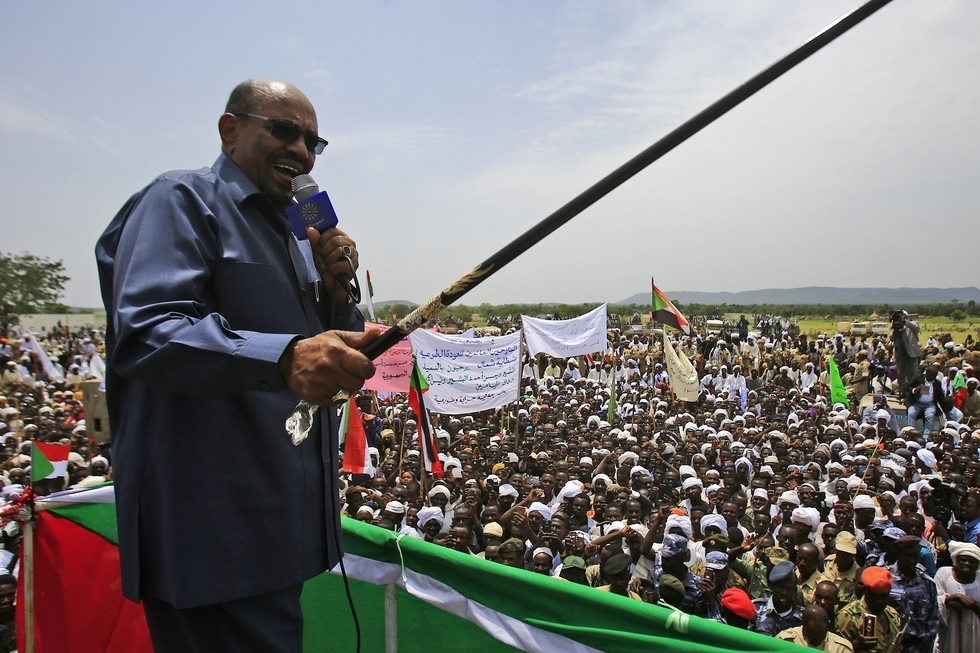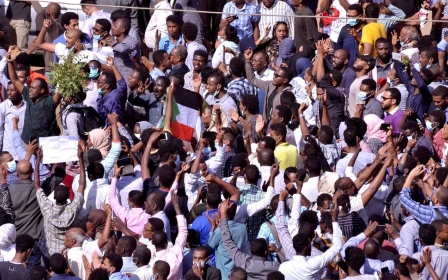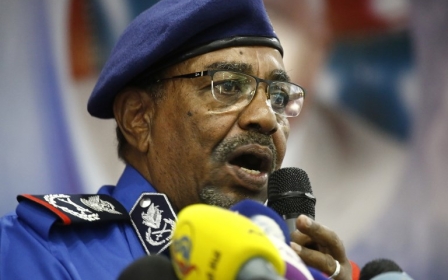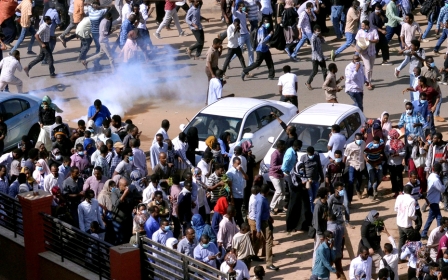Sudan's Bashir rejects calls to step down amid ongoing demonstrations

Sudanese President Omar al-Bashir, facing the most persistent protests since he seized power in 1989, rejected calls for his resignation as security forces cracked down on a large demonstration in the eastern city of al-Qadarif.
Addressing soldiers on Wednesday at a military base near Atbara, northeast of the capital Khartoum, Bashir scoffed at calls by demonstrators for him to hand over power to the military.
"We have no problem because the army does not move to support traitors, but moves to support the homeland and its achievements," the official SUNA news agency quoted Bashir telling soldiers, according to multiple media outlets.
Bashir, a former army general, came to power in a coup and has held on through successive elections that his opponents say were not free or fair.
Protests against price rises and other economic hardships began on 19 December. Authorities say 19 people, including two security officials, have been killed, while Amnesty International and Human Rights Watch put the number at double that.
Security forces have blocked and broken up demonstrations using live ammunition as well as teargas and stun grenades, witnesses told Reuters.
Tuesday's demonstration in al-Qadarif was one of the largest in recent weeks.
Video posted on social media showed hundreds of people chanting "freedom, peace, justice!" and "revolution is the people's choice". Reuters could not independently verify the footage.
Three residents of al-Qadarif, who were not involved in the protests themselves, told Reuters that security forces fired tear gas to break up the demonstration, which was organised by a group of unions known as the Sudanese Association of Professionals.
Governor al-Tayib al-Amin told Reuters the protests were limited and that police dealt with the situation professionally.
Britain, the United States, Canada and Norway said in a joint statement on Tuesday they were concerned about the Sudanese government's response to the protests.
"We are appalled by reports of deaths and serious injury to those exercising their legitimate right to protest, as well as reports of the use of live ammunition against protesters," the statement said.
Sudanese authorities have arrested more than 800 demonstrators during protests over the past few weeks, Interior Minister Ahmed Bilal Osman has said.
"The total number of protesters arrested until now is 816," Osman told parliament on Monday, as reported by AFP.
Sudan's economy has struggled to recover from the loss of three-quarters of its oil output, its main source of foreign currency, since South Sudan seceded in 2011, keeping most of the once-united country's oil fields.
Inflation is running at 70 percent and the Sudanese pound has plunged in value, while shortages of bread and fuel have regularly hit several cities.
The Sudanese president is also wanted by the International Criminal Court over charges of masterminding genocide in Darfur, accusations that Bashir dismisses.
New MEE newsletter: Jerusalem Dispatch
Sign up to get the latest insights and analysis on Israel-Palestine, alongside Turkey Unpacked and other MEE newsletters
Middle East Eye delivers independent and unrivalled coverage and analysis of the Middle East, North Africa and beyond. To learn more about republishing this content and the associated fees, please fill out this form. More about MEE can be found here.




